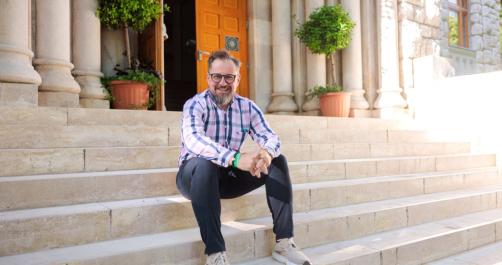
For scholars and students interested in global development, the University of Pécs has become a leading name in African research. The long‑term work of its faculty reflects a dedication that goes beyond academic curiosity, turning research into a platform for social impact.
Emerging From Early Exposure: The Path to Africa
Many researchers begin without a clear destination, but Dr. István Tarrósy’s career illustrates how an early academic experience can shape a lifelong focus. While studying at the University of Leicester in the late 1990s, he was exposed to a diverse student body that included several young Africans. This environment sparked a fascination with sub‑Saharan realities, a curiosity that later guided him into fieldwork in Tanzania, Ethiopia, and Kenya.
Translating Curiosity Into Fieldwork
His first visit to Tanzania in 2000 marked the start of a pattern: rigorous, on‑ground investigations paired with theoretical analysis. In 2018, he joined a project examining Chinese‑financed railways in Ethiopia, a study that provided insights into the economic, environmental, and political ramifications of large infrastructure projects. The results were cited in policy briefs and academic journals across the globe, showing the reach of diligent field research.
Institutionalizing African Studies at Pécs
Recognizing that individual effort could not sustain the momentum, Dr. Tarrósy helped establish the Africa Research Centre. The centre brings together experts from geography, political science, economics, anthropology, linguistics and even music, creating a multidisciplinary hub that reflects Africa’s complexity. Its activities now include annual conferences, public lectures, internship pathways, and a doctoral school that attracts scholars from around the world.
Integrating Language into Curriculum
Language is critical for meaningful engagement. The centre’s initiative to teach Swahili in the International Studies MA is a practical step. Swahili, spoken by approximately 200 million people, serves as the lingua franca of East Africa. Mastery of the language equips students for fieldwork, policy analysis, and cross‑cultural communication. In the coming academic year, the university plans to make Swahili a core requirement of the African Studies track.
Impact on European and African Policy Dialogues
Research findings from Pécs are influencing policy at both the continental and national levels. The centre publishes the Hungarian Journal of African Studies, an open‑access platform that features research from international authors, especially African scholars who often face publication barriers. This journal not only broadens academic visibility but also informs debates on partnerships, investment, and human rights.
Building Partnerships With African Nations
Through collaborations such as the planned delegation to Africa in 2026, Pécs seeks to foster reciprocal academic relationships. By sharing expertise on governance, education, and infrastructure, the university positions itself as a partner in the continent’s agenda for development and sustainability. These partnerships underscore the university’s commitment to equitable, partnership‑based research.
Teaching as Service: A Philosophy in Action
Dr. Tarrósy’s work shows that scholarship transcends the ivory tower. Teaching, public outreach, and service are integral components of research. The centre’s outreach programmes—public lectures on African cultures, exhibitions, and community discussions—extend the impact beyond academia, bringing knowledge and empathy to broader audiences.
From Scholarship to Practice
Beyond theory, the centre tackles pressing social issues, such as the persecution of people with albinism in Tanzania. Field surveys and policy analysis provide evidence that informs advocacy and legal reform. Publications on this topic have become reference points for activists, governments, and non‑profit organizations dedicated to protecting vulnerable communities.
Why This Matters for Aspiring International Scholars
For students and researchers, the University of Pécs offers a robust ecosystem for studying Africa: interdisciplinary courses, field research opportunities, language instruction, and a global network of scholars. Engaging with the centre means contributing to scholarship that shapes policy and practice on the ground.
How to Join the Mission
Students interested in African studies can apply to the university’s International Studies MA with a specialization in African Studies. The program integrates coursework with field projects, offering a hands‑on learning experience that prepares graduates for careers in academia, NGOs, government agencies, and the private sector.
Key Takeaways
- Early academic exposure can guide a focused research trajectory.
- Institutionalizing research through centres fosters sustainability and impact.
- Language skills, such as Swahili, are essential for effective field engagement.
- Open‑access journals broaden knowledge dissemination and inclusion.
- Research can directly influence policy and social practice when coupled with outreach.
Take the Next Step
Ready to explore research opportunities that blend academic rigor with real‑world impact? Explore the International Studies MA program and discover how the University of Pécs can help you build a career focused on African development.
Curious about how research can translate into policy change? Browse our upcoming events and workshops to see how the Africa Research Centre engages with students and the public.
Have questions about applying or wish to discuss your research interests? Contact the International Office to schedule a consultation.
We invite you to share your thoughts or questions in the comments below or join our community discussion on LinkedIn to connect with scholars working on African studies.

